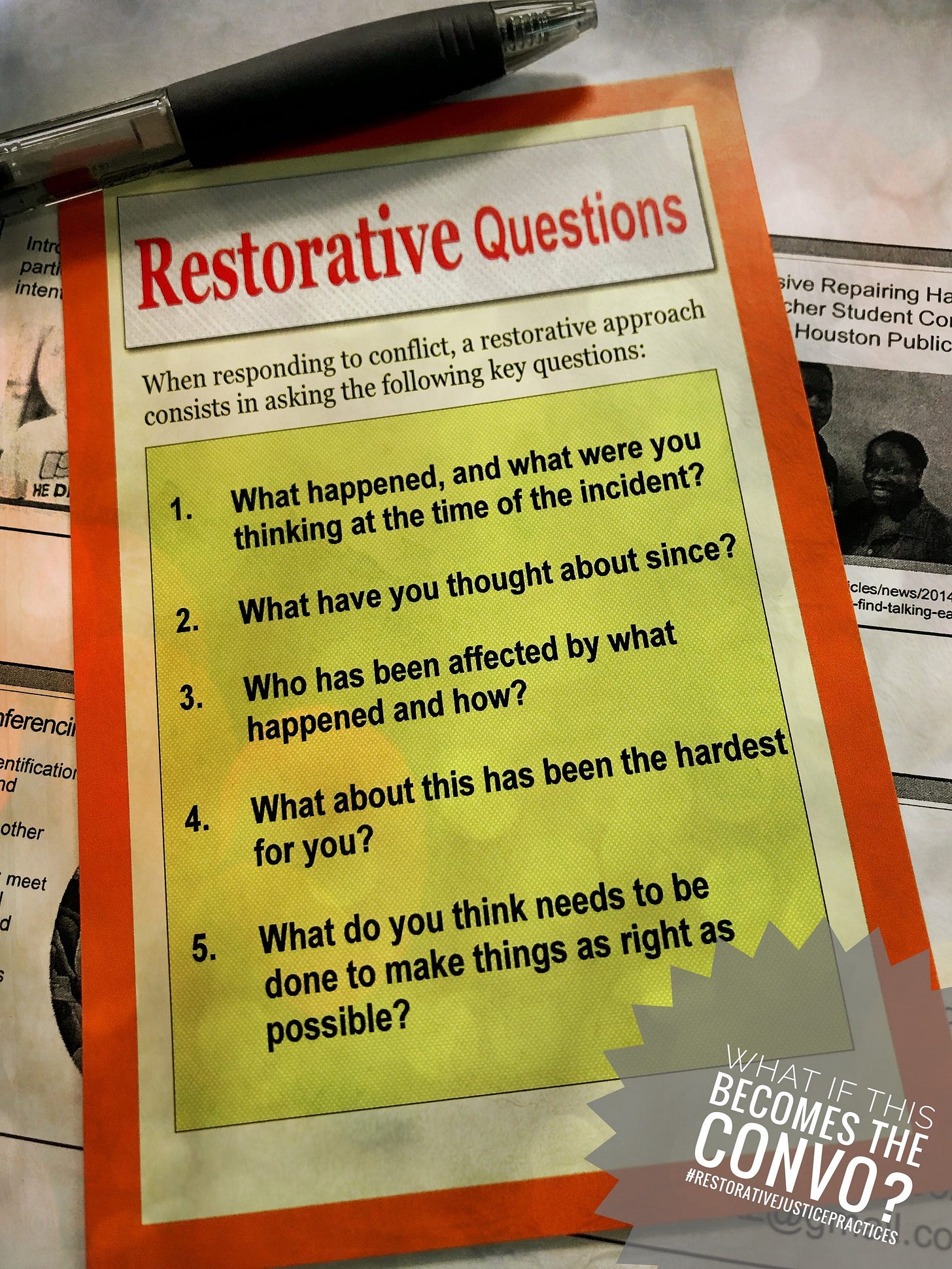Restorative Practices: What if ... ?
A week beyond another school shooting, when I’d answered nearly a dozen media interviews about school safety in my current work, here I was … with something I knew could work and change lives…
“Emerson, I am trying to live, as you said we must, the examined life. But there are days I wish there was less in my head to examine, not to speak of the busy heart.” –Mary Oliver, Red Bird
Friday, February 23, 2018, I sat in circle with 50 people on the most western point of the US highway system, in Homer, Alaska. The room was cramped, the facilitator from California, with a South Africa accent, seated to my right. I gazed around the circle … colleagues in the school district, agency partners, elected officials.
My heart wandered to decades past and a vibrant life I’d lived in Northern Colorado. Where I was working in the 1990s and until 2004, Dr. Tom Cavanaugh was reimagining the justice system after decades as a court reporter, then living in New Zealand, and imagining another way where “victim” has a voice, and when there is remorse, an opportunity for a person who caused harm to repair the damage, and a collective reweaving of justice to emerge, that is transformative, life-giving.
Ten plus years I’ve been on the Kenai Peninsula, wondered how Restorative Justice (RJ) could be implemented here in Alaska. I often think of Joel, a student in my Colorado leadership group who chose to bring RJ – Restorative Justice – formal conferencing to Colorado State University as his honors project. (It’s now embedded in the CSU resolution center). My training as an RJ facilitator. People I’d met. Lives that had changed because of deep listening, willingness to explore the art of possibility.
A week beyond another school shooting, when I’d answered nearly a dozen media interviews about school safety in my current work, here I was … with something I knew could work and change lives. I was inspired learning about the adaptations in a decade to multi-levels of implementation, in schools. I know this could change lives. And we were having the conversation.
On this Friday, in this circle, I knew I was in the right place at the right time. It’s been a circuitous route, but I think of lives I’ve known who’ve changed because of RJ. And, wondered about how lives could have changed because of RJ … if only … and lives that might change in future times.
There are no easy answers to the complexity of the world in which we live. These thoughts are mine alone, and do not reflect my positional voice in my current work representing a school district.
However, I can wonder, “what if …”
What if our schools on the Kenai Peninsula, throughout Alaska, and in the United States, shifted the conversation? Moved upstream, and asked questions like these when there was harm and division between people of all ages. What if our leadership was rooted in restorative leadership? And, what if …? not only our littles, but we ourselves, were brave enough to have conversations with questions like this, facilitate conversations like this, and we were present, breathing deep, letting go of blame, victimization, and power games. What if? …
KBBI story: http://kbbi.org/post/homer-flex-high-school-adopting-restorative-justice
Pause to reflect
Is there a situation or someone in your life where you caused harm, or where someone did something that caused harm to you?
Pull out a piece of paper, take a deep breath, get real, and answer these questions for yourself. Or, talk to a trusted friend who can deeply listen – no problem solving – simply share or listen.
Parents – how about sitting with your kids after a fight or argument de-escalates, and utilize these questions.
Are you in a relationship with a willingness to listen to each other after a disagreement or argument de-escalates? These specific questions and responses could shift your relationship in a healthy positive way.




